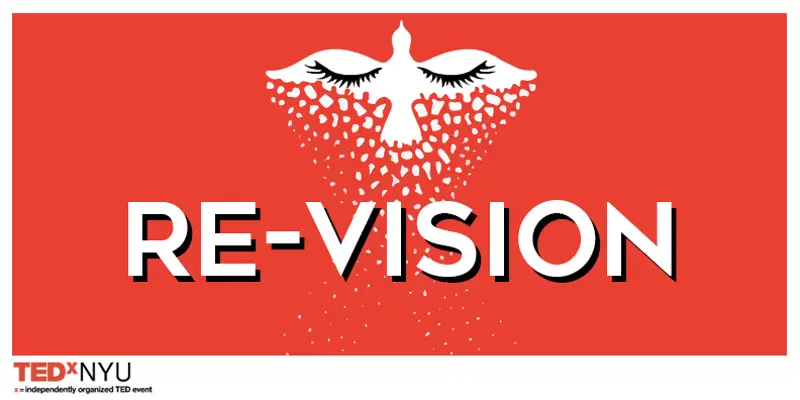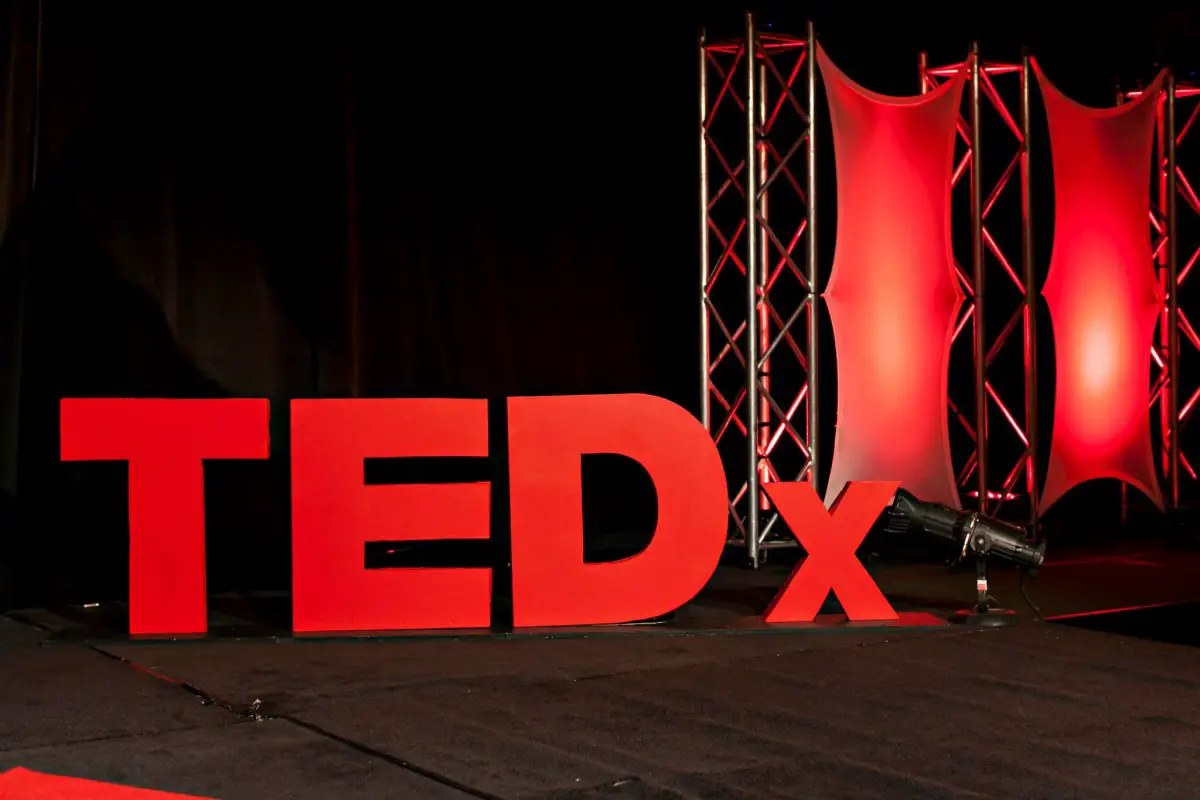TEDx NYU, an annual conference taking place in order to shine the light on the visionaries, highlights students and their ideas to re-shape the future. This year’s TEDx NYU talk, titled “Re-vision,” calls for an exchange of perspectives and shift in overall understanding.
Speakers of this conference include students in NYU’s programs, such as film and television production, public policy, management of technology and global liberal studies.
Also in attendance are the president of the largest vegetarian hunger relief program in the United States, a former Wall Street executive now preaching mindfulness and a scientist from NYU Langone researching the development of hand-eye coordination in those deprived of vision.

RJ Khalaf is a senior pursuing a degree in global liberal studies with concentrations in politics, rights, and development and a minor in social entrepreneurship. Khalaf’s Tedx NYU talk focused on programs that further the development of leadership qualities for those facing hardship in developing countries.
Growing up in the United States as a Palestinian youth himself, he recently visited Palestine, which allowed him to understand more of the growing crisis centered there and the impossibility of change without the introduction of leadership.
Khalaf is the founder and director of LEAD Palestine. Through his travels, he has rendered a unique perspective on a global crisis. Rather than the generalized suppression of Palestinian youth, Khalaf claims the problem is the inconspicuous nature of leadership qualities.
“The entire misconception about leadership is that leaders are born,” he says. Those who view their lineage as stagnant discourages the reasoning that one has the power to rise above, which Khalaf labels as dangerous.
The idea that one cannot become a leader unless they were born into the title itself is the kind of thinking that does not inspire and allows neither hope nor the inspiration of others.
The global liberal studies student describes leadership as a quality of kindness, love and the ability to bring people together toward a common cause. A leader is one who knows themselves and recognizes both their strengths and their weaknesses in the pursuit of what is right.
A leader holds people accountable while maintaining empathy toward those around them. A leader is not one who is feared, but one who is respected. Khalaf believes that this leadership is one that can — and must be — brought out in the coming generations.

LEAD Palestine works with the Palestinian youth centered in refugee camps in order to inspire these children, to foster a belief in themselves and help them become the leaders they are meant to be.
The ultimate goal, Khalaf states, is to help those in the camp “understand their inner leadership potential,” through fostering skills, such as communication, collaboration and active listening.
Those involved are not necessarily being taught these skills; the camp aims to bring out the qualities that are already present in the individuals. In recognition of these skills, Khalaf hopes the children of Palestine will be inspired to look beyond their situation through the understanding of the good and the bad, and what they can do to help.
Throughout the presentation, I was overwhelmed by the initiatives taken toward combating global issues, many of which are incomprehensible to those immersed in the capitalist society of the United States.
Although centered around student ideas of re-visioning the future, local change-makers provided countless perspectives in order to further the scope of the program.
These allocation of efforts toward these issues are significant in the construction of an interconnected, efficient society. Individuals such as Jon Stepanian are key in the movement toward change.
Stepanian is the co-founder of Long Island Food Not Bombs and the president and CEO of Community Solidarity. Founded in 2006, Food Not Bombs began with the simple task of sharing their groceries with their neighbors in need.
The Long Island chapter has since grown to be the largest chapter in the world, whose principles have been furthered through the multiplication of these same motives in providing aid to communities throughout the world.
Stepanian, through the creation of Community Solidarity, has amplified his initiatives and fostered a global movement: instead of sharing his groceries with the family next door, he could share them with the entire world.
Stepanian has continued to dedicate his efforts to relieving world hunger. Community Solidarity is the largest vegetarian hunger relief program in the United States, a program dedicated to providing long-term solutions to world hunger.
The organization, however, does not label itself an organization at all, but rather a philosophy that must be spread to the countries suffering from hunger and poverty.

“Essentially, we exist to put ourselves out of business,” their mission claims. The food gone unused by our community is put to use by distributing these vegetarian products to other countries. Without the existence of this program, these fresh products would end up in landfills.
Community Solidarity, as the name suggests, nurtures community interdependence rather than just provisions of food, allowing for the integration of these communities into our globalized market.
Currently, through this movement, Stepanian works with these communities to promote balanced nutrition through sharing vegetarian groceries, warm vegan meals and clothing. His influence on global issues has transcended the corporate level; his commentary has reached the Times, Tribune, Change, CNN and the Huffington Post.
The Tedx NYU’s conference allowed for a pooling of knowledge to build a basis of understanding. Students come together today in this platform to confront the issues of tomorrow.
In a city so large, this intersection of urban topics and global change has paved the way for these change-makers to offer their unique perspectives when encountering these global issues.
Students were able to leave this conference hopeful of the future. In acknowledging these issues, feeling overwhelmed is commonly the first response.
However, in taking these initiatives and working with the tools acquired today, students are able to further anticipate positive foreseeable changes.

















